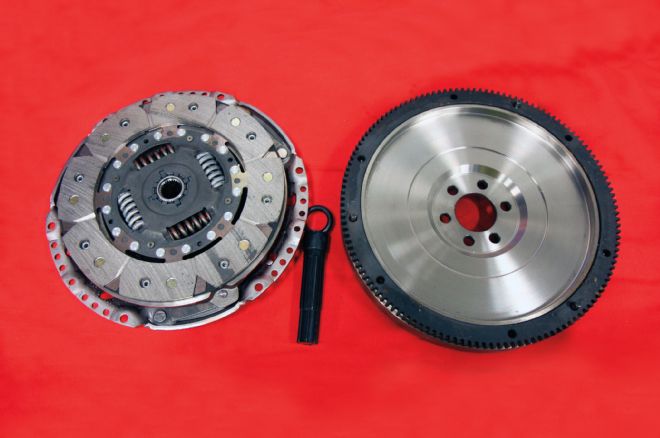 | 2002 Volkswagen Jetta TDI 02
South Bend Clutch's Stage 2 HD-OFE unit is classified as an endurance clutch and is rated for 350 lb-ft of torque (although the folks at Kerma TDI believe that is a fairly conservative rating). It came with a low-carbon, hot-rolled-steel, single mass flywheel (SFI-approved); heavy-duty pressure plate; and alignment tool. The pedal feel and performance of this clutch make it perfect for a modified yet daily driven Jetta.
| 2002 Volkswagen Jetta TDI 02
South Bend Clutch's Stage 2 HD-OFE unit is classified as an endurance clutch and is rated for 350 lb-ft of torque (although the folks at Kerma TDI believe that is a fairly conservative rating). It came with a low-carbon, hot-rolled-steel, single mass flywheel (SFI-approved); heavy-duty pressure plate; and alignment tool. The pedal feel and performance of this clutch make it perfect for a modified yet daily driven Jetta.
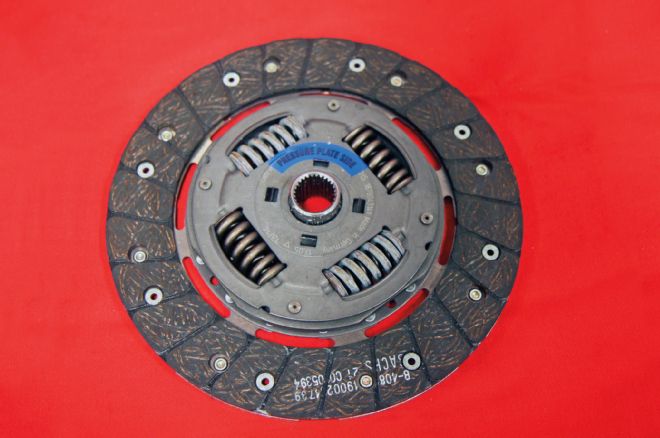 | 2002 Volkswagen Jetta TDI 03
The pressure plate side of the Stage 2 clutch (shown) features South Bend's Organic lining, which doubles the coefficient of friction compared to a stock lining and vastly increases rotational strength. The flywheel side employs a full-face Feramic (sintered iron) lining, which provides strong positive engagement yet buffers the grabbiness of the clutch for a smooth-feeling engagement.
| 2002 Volkswagen Jetta TDI 03
The pressure plate side of the Stage 2 clutch (shown) features South Bend's Organic lining, which doubles the coefficient of friction compared to a stock lining and vastly increases rotational strength. The flywheel side employs a full-face Feramic (sintered iron) lining, which provides strong positive engagement yet buffers the grabbiness of the clutch for a smooth-feeling engagement.
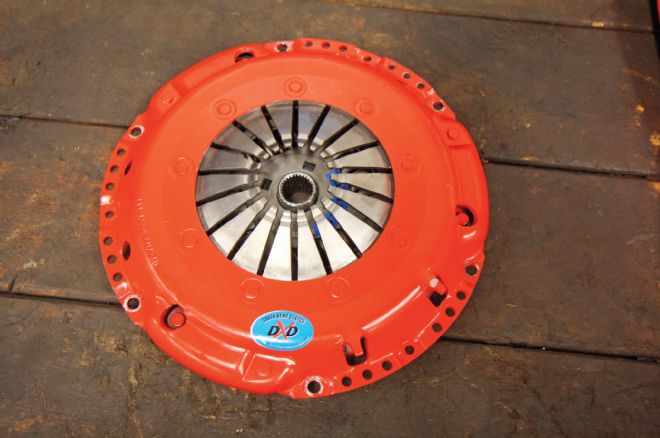 | 2002 Volkswagen Jetta TDI 04
This heavy-duty pressure plate supplied in the clutch kit is the primary reason why the car drives so nice now. It effectively increases clamp load, but without the added pedal pressure you would expect to experience with a performance clutch. It is precision balanced, and there are no signs of vibration at high rpm.
| 2002 Volkswagen Jetta TDI 04
This heavy-duty pressure plate supplied in the clutch kit is the primary reason why the car drives so nice now. It effectively increases clamp load, but without the added pedal pressure you would expect to experience with a performance clutch. It is precision balanced, and there are no signs of vibration at high rpm.
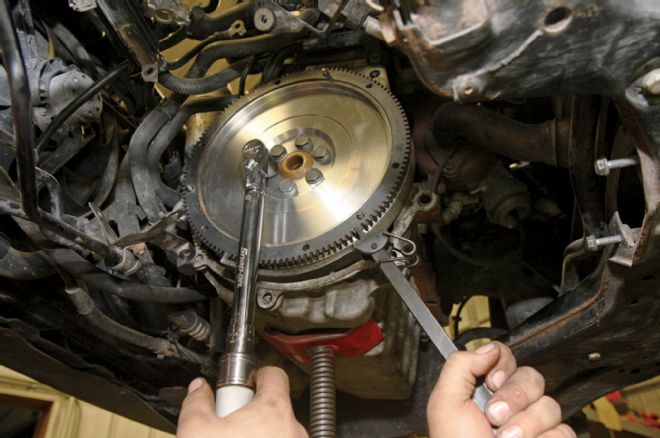 | 2002 Volkswagen Jetta TDI 05
New flywheel bolts were also supplied with South Bend's Stage 2 clutch, making the install that much easier. The flywheel bolts were torqued to the recommended 55 ft-lb spec.
| 2002 Volkswagen Jetta TDI 05
New flywheel bolts were also supplied with South Bend's Stage 2 clutch, making the install that much easier. The flywheel bolts were torqued to the recommended 55 ft-lb spec.
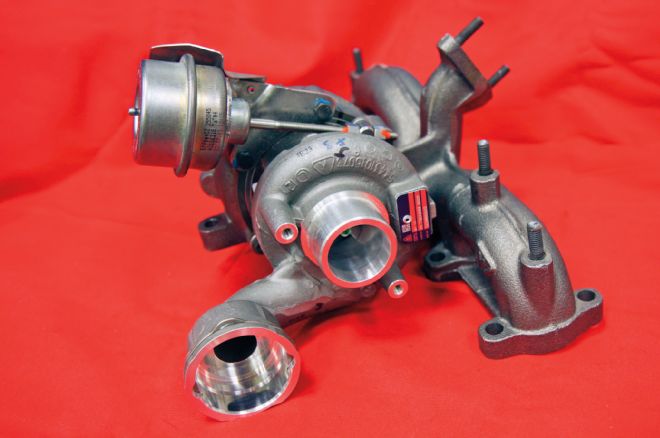 | 2002 Volkswagen Jetta TDI 06
Replacing the stock Garrett VNT-15 turbo is this vacuum-actuated, BorgWarner BV39 VNT, which Kerma TDI calls its S7 v2 and sells for $967. It is said to be the latest and greatest for ALH Volkswagen engines, perform similarly to the popular VNT-17 turbo, and reliably support a car in the 150hp range.
| 2002 Volkswagen Jetta TDI 06
Replacing the stock Garrett VNT-15 turbo is this vacuum-actuated, BorgWarner BV39 VNT, which Kerma TDI calls its S7 v2 and sells for $967. It is said to be the latest and greatest for ALH Volkswagen engines, perform similarly to the popular VNT-17 turbo, and reliably support a car in the 150hp range.
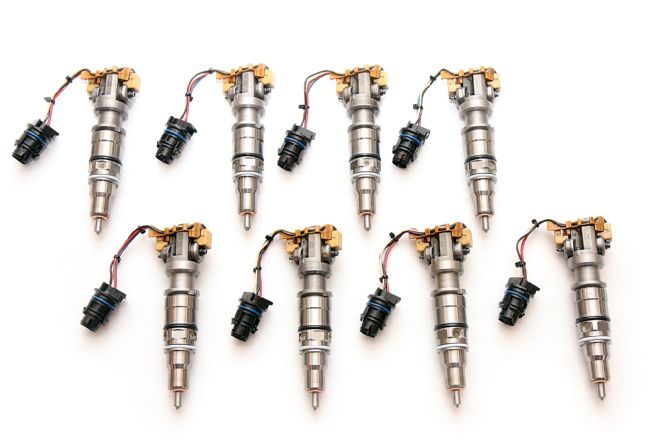 | 2002 Volkswagen Jetta TDI 07
With the turbine housing and exhaust manifold cast as a single piece, the S7 is a nice, all-in-one package. We were subtly surprised to find that the manifold also came pre-tapped for a pyrometer probe.
| 2002 Volkswagen Jetta TDI 07
With the turbine housing and exhaust manifold cast as a single piece, the S7 is a nice, all-in-one package. We were subtly surprised to find that the manifold also came pre-tapped for a pyrometer probe.
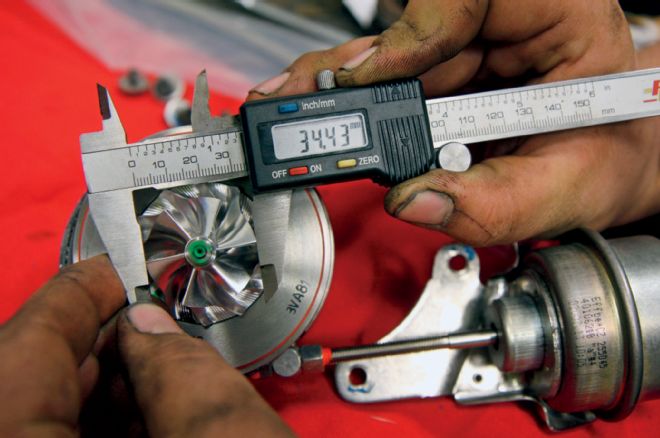 | 2002 Volkswagen Jetta TDI 08
Wanting to know what size turbo we were working with, we pulled the S7 BorgWarner unit's compressor housing and broke out the caliper. As it turns out, the extended-tip, billet compressor wheel measures 34.4 mm on the inducer (shown), and 47.4 mm on the exducer. By comparison, the stock turbo's compressor wheel inducer measured 33 mm.
| 2002 Volkswagen Jetta TDI 08
Wanting to know what size turbo we were working with, we pulled the S7 BorgWarner unit's compressor housing and broke out the caliper. As it turns out, the extended-tip, billet compressor wheel measures 34.4 mm on the inducer (shown), and 47.4 mm on the exducer. By comparison, the stock turbo's compressor wheel inducer measured 33 mm.
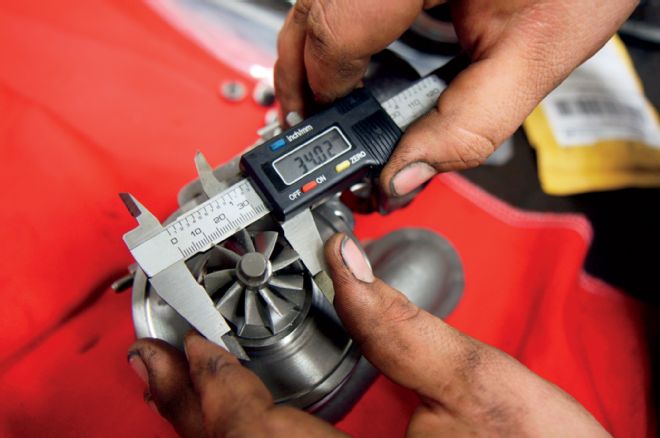 | 2002 Volkswagen Jetta TDI 09
Taking the same measurements on the turbine side, we found the turbine wheel's exducer was 34 mm. Its inducer measured 37.5 mm.
| 2002 Volkswagen Jetta TDI 09
Taking the same measurements on the turbine side, we found the turbine wheel's exducer was 34 mm. Its inducer measured 37.5 mm.
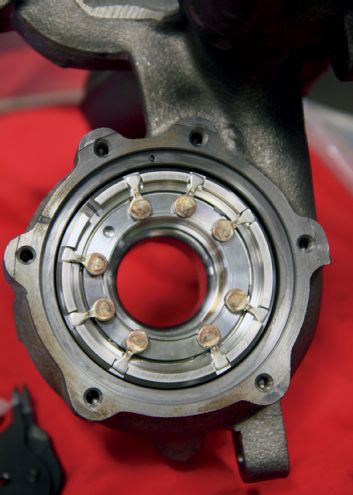 | 2002 Volkswagen Jetta TDI 10
The working side of the S7 turbo lies in its turbine housing, where varied nozzle positioning effectively changes the turbo's A/R. This is why the S7 is so responsive, and why our Jetta blasted past the 300-lb-ft mark later in this article (see dyno graph).
| 2002 Volkswagen Jetta TDI 10
The working side of the S7 turbo lies in its turbine housing, where varied nozzle positioning effectively changes the turbo's A/R. This is why the S7 is so responsive, and why our Jetta blasted past the 300-lb-ft mark later in this article (see dyno graph).
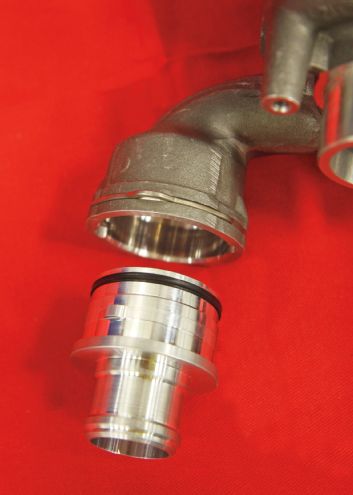 | 2002 Volkswagen Jetta TDI 11
Kerma TDI's billet-aluminum hose adapter allowed us to adapt the S7's turbo outlet pipe to the factory intercooler plumbing. We opted for the adapter that works with the factory intercooler hoses (1.25-inch diameter), although 2-inch and 1.75-inch adapters are also available.
| 2002 Volkswagen Jetta TDI 11
Kerma TDI's billet-aluminum hose adapter allowed us to adapt the S7's turbo outlet pipe to the factory intercooler plumbing. We opted for the adapter that works with the factory intercooler hoses (1.25-inch diameter), although 2-inch and 1.75-inch adapters are also available.
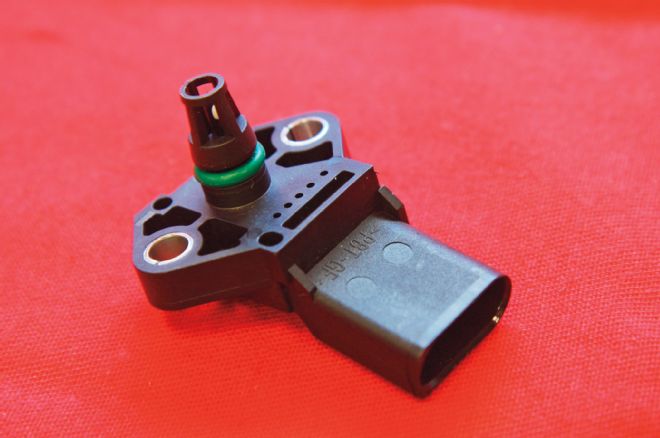 | 2002 Volkswagen Jetta TDI 12
Because we planned to see elevated boost with the new turbo, a 3-bar MAP sensor (29 to 30 psi) replaced the factory 2.5-bar unit (22 to 23 psi, at best). With the stock MAP sensor, we would've been limited to stock boost levels. For adequate boost control, Kerma TDI made the adjustment for the 3-bar MAP sensor in our tuning.
| 2002 Volkswagen Jetta TDI 12
Because we planned to see elevated boost with the new turbo, a 3-bar MAP sensor (29 to 30 psi) replaced the factory 2.5-bar unit (22 to 23 psi, at best). With the stock MAP sensor, we would've been limited to stock boost levels. For adequate boost control, Kerma TDI made the adjustment for the 3-bar MAP sensor in our tuning.
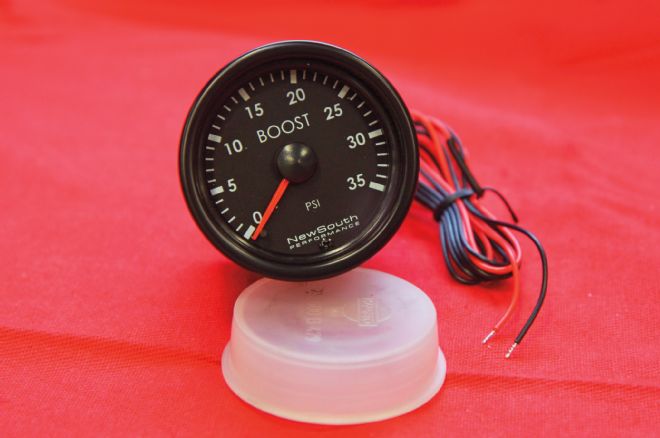 | 2002 Volkswagen Jetta TDI 13
To keep an eye on boost, we installed this Indigo 0-35 psi gauge (complete with a single gauge pod) from NewSouth Performance for $110. The gauge came pre-wired, with fittings, and matches the Jetta's factory gauge cluster.
| 2002 Volkswagen Jetta TDI 13
To keep an eye on boost, we installed this Indigo 0-35 psi gauge (complete with a single gauge pod) from NewSouth Performance for $110. The gauge came pre-wired, with fittings, and matches the Jetta's factory gauge cluster.
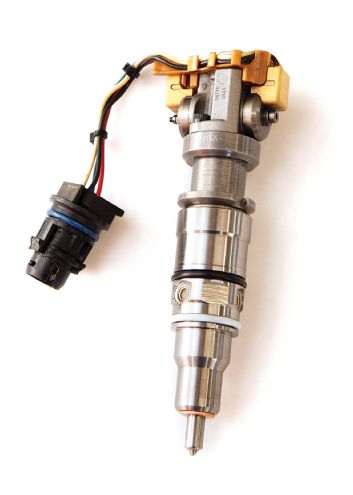 | 2002 Volkswagen Jetta TDI Dyno Chart
Back on the rollers at Randall's Performance, the clutch had no problem dealing with the load applied by the SuperFlow chassis dyno, and the Jetta made 30 psi of boost and an impressive 156 hp and 328 lb-ft of torque. Notice that at least 150 hp or more is being made from 2,400 to 4,000 rpm. Since Part 1 began, we effectively added 67 hp and 181 lb-ft to the little Volkswagen. The best part is that we've done it without paying a fuel economy penalty (it still knocks down upper 40s on the highway)!
Past Modifications Part 1, June '14
| 2002 Volkswagen Jetta TDI Dyno Chart
Back on the rollers at Randall's Performance, the clutch had no problem dealing with the load applied by the SuperFlow chassis dyno, and the Jetta made 30 psi of boost and an impressive 156 hp and 328 lb-ft of torque. Notice that at least 150 hp or more is being made from 2,400 to 4,000 rpm. Since Part 1 began, we effectively added 67 hp and 181 lb-ft to the little Volkswagen. The best part is that we've done it without paying a fuel economy penalty (it still knocks down upper 40s on the highway)!
Past Modifications Part 1, June '14
Current Modifications
Clutch: South Bend Stage 2 OFE-HD
Turbo: Kerma TDI S7 BorgWarner
156 hp, 328 lb-ft